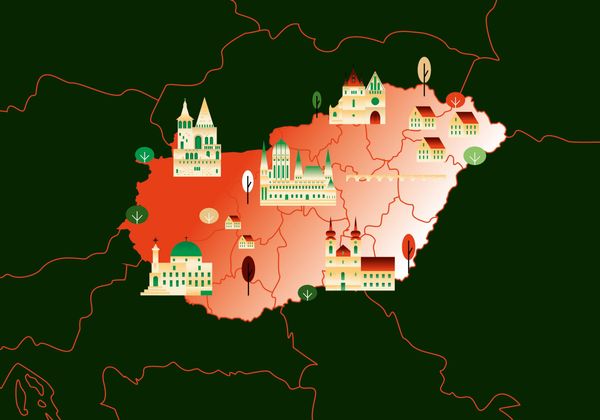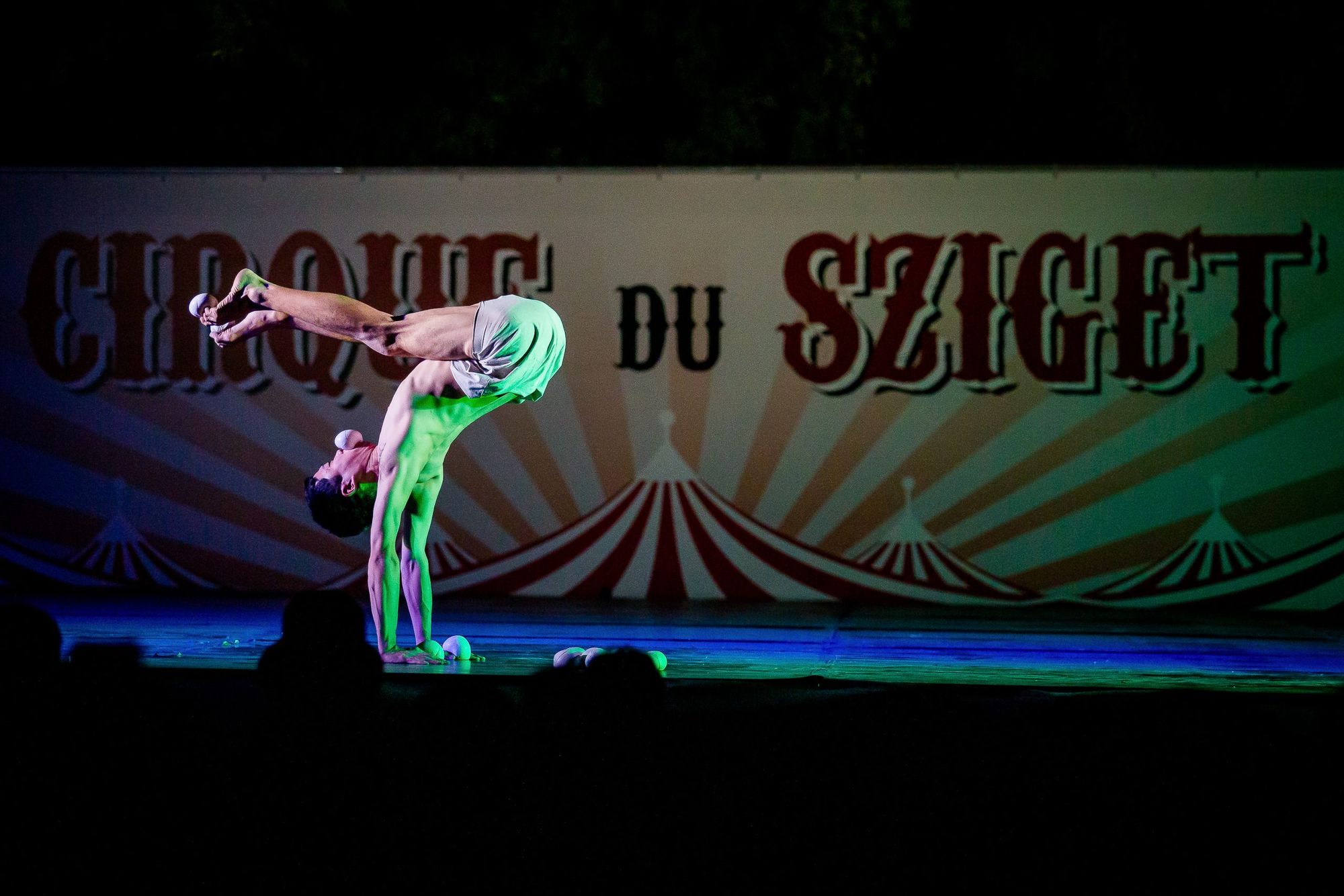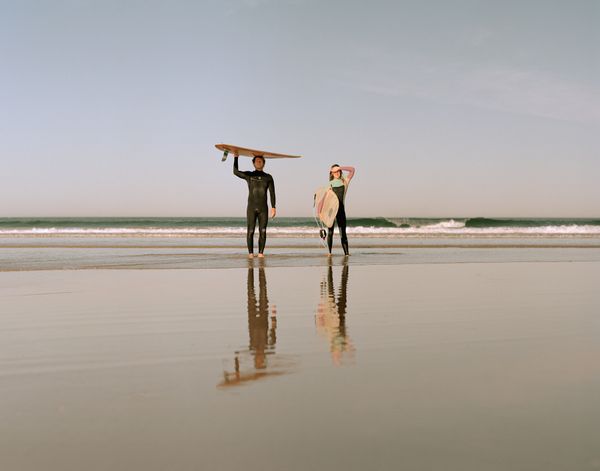Sziget—The Island of Freedom, where anything can happen. A place where you can live in the moment without any restraints, put on your most daring outfit without the scrutiny of judging eyes, or have a wild evening wearing jeans and no make-up. But that’s not the only reason why Sziget is a land of freedom: it’s a place where the laws of gravity and physics cease to exist, where body and soul can truly break free of all shackles, and this is in great part due to the cultural programs that Sziget has to offer. Let us invite you into this magical world!
“I want to show the incredible freedom of the human body”—this is the mission of Hisashi Watanabe, an acrobatic juggling superstar, who after years of continuous effort has finally been brought to the Sziget Festival this year, all the way from Japan. The artist, who bills himself as a ‘body scientist’, transforms himself into a somewhat animal-like creature of instinct before our eyes with movements defying all our previous knowledge of human anatomy, showing us all the potential that our bodies hold and that we so often leave untapped.
“Our toes can in fact be used in the same way as our hands, but we tend to forget that nowadays. I think that’s why I became a toe advocate.”
The icing on the cake, of course, is that Hisashi juggles mini-balls during his amazing, contorted moves—and without exaggeration, uses every part of his body to perform the stunt. He says that exploring our bodies is vital to relaxing our muscles and thereby finding balance in our lives.
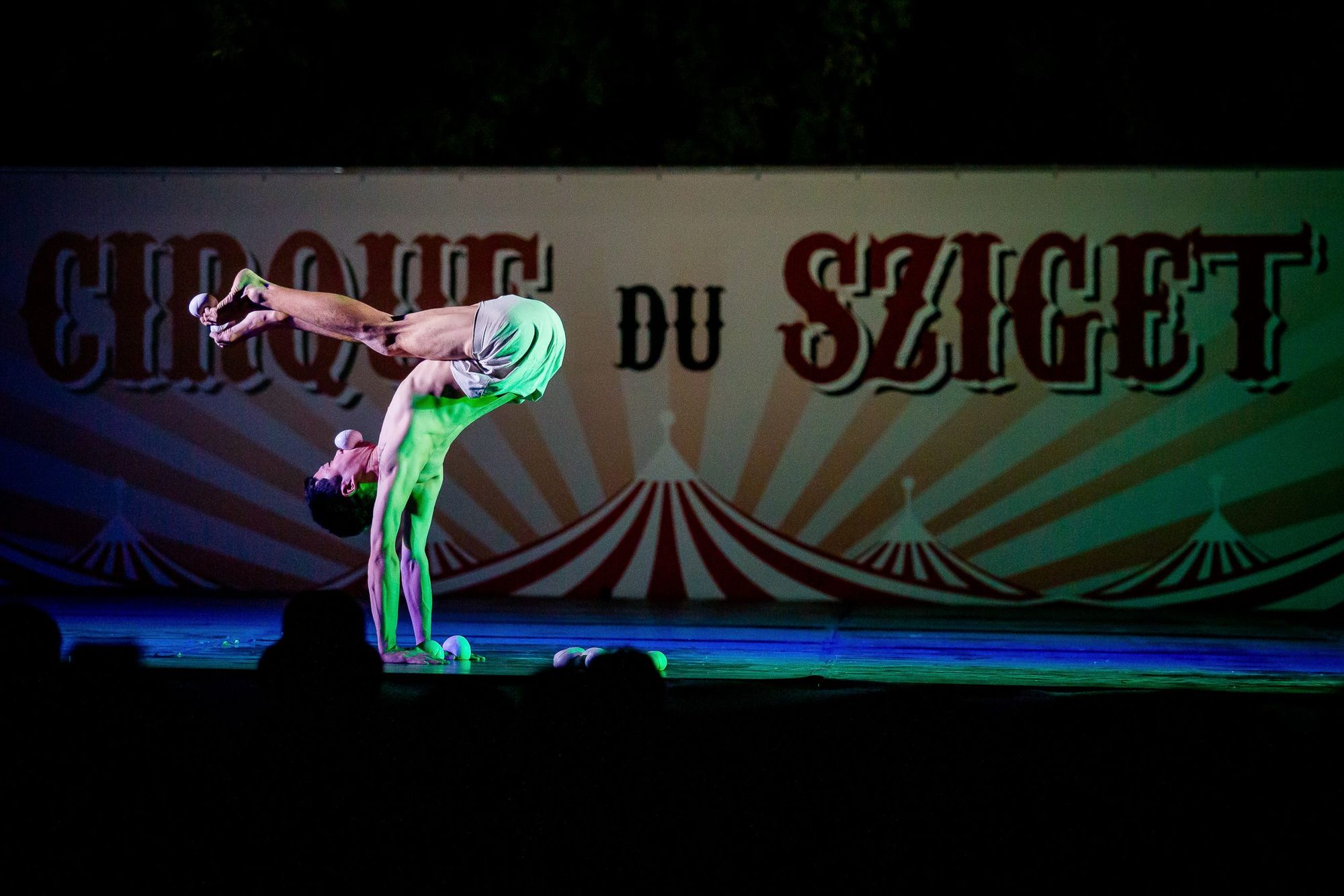
Balance, of course, is essential in our lives as well, but perhaps even more so in the lives of performers and other artists. We have witnessed this on countless occasions during the festival, just by spending a few minutes in the Cirque du Sziget tent. Every day, from early afternoon until late at night, we were treated to thrilling, almost hair-raising performances in this circus tent that seats a thousand people. Here follows a non-exhaustive overview of these fabulous performances.
At the top of my personal list is undoubtedly the show of the Montreal Barcode Circus Company, “Sweat&Ink”. The four-piece ensemble took us to a truly unique dimension, exploring themes of memory and human relationships, where it’s no surprise to land upside down from a diving board on the other’s shoulder, or pirouette on a hoop eight meters above the ground. In case the dizzying spectacle, enchanting music, and spooky lighting effects still don’t reach your stimulus threshold: the message is something that will leave you shaken up.
“The story is about how we appear in other people’s memories and how we can find ourselves in a place where others have a strong concept of who we are. Would we be happier if we lost some of our memories? Why are we so obsessed with creating memories? Since time immemorial, humanity has been searching for ways to preserve memories to the best of our ability. The problem has been solved: we all have a memory stick in our hands. We constantly record events, take photos, and make recordings with our phones. The only thing we forget is to live the moment.” /Alexandra Royer, Barcode Circus Company/
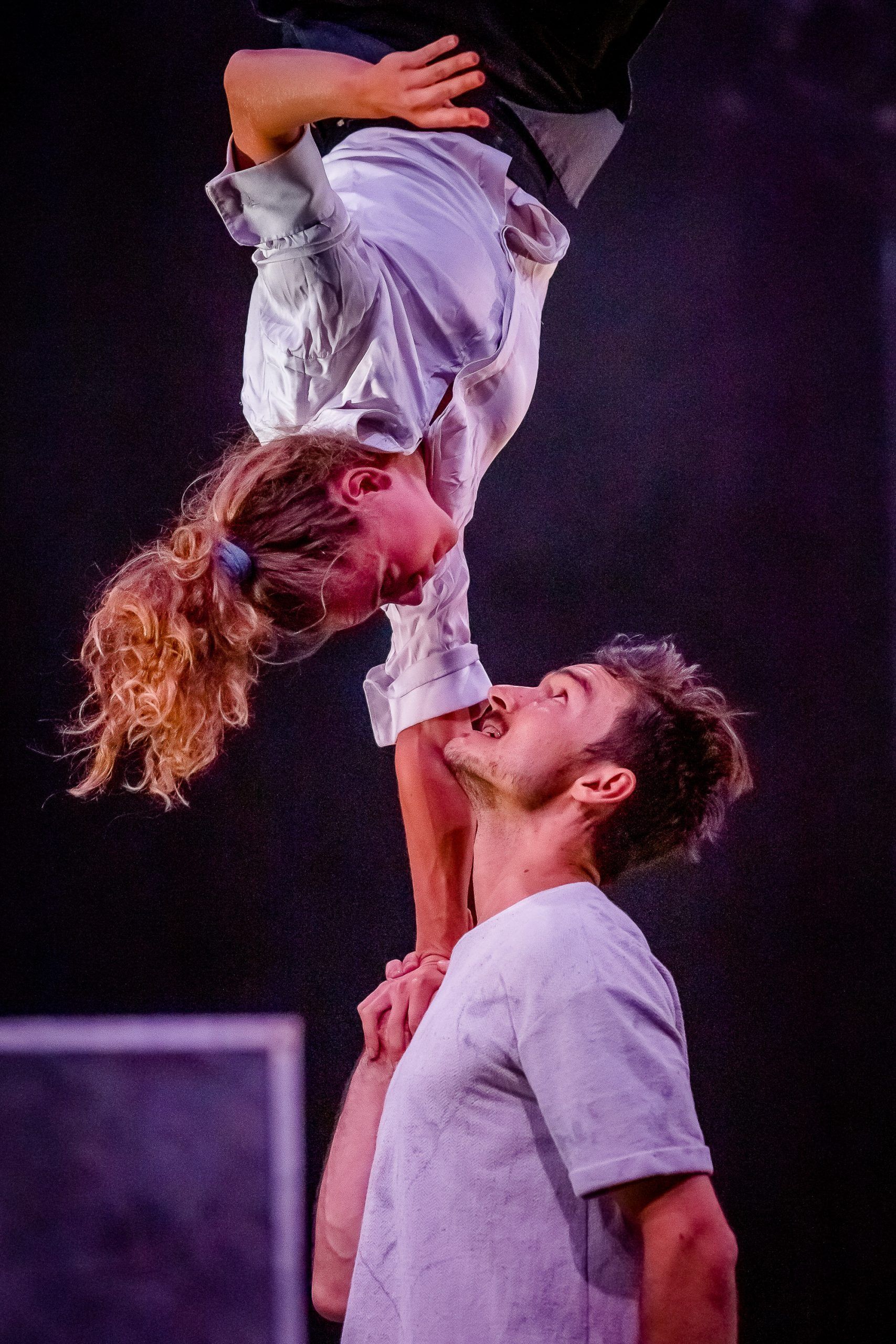
“Circus gives me freedom.”
In light of the above, this statement may not be news, but this emotion is put in a whole new light when a member of the Palestinian Circus School talks about this special vocation. Ahmad and his six companions came to Sziget with an unusual mission: to spread the word about the plight of Arab women, and to stand up for their cause in Arab countries and on international stages. With their performance “My Share”, they explore family traditions, family roles, and stereotypes through amazing acrobatic stunts and juggling. But there is something quite special about what they do. Something that we Europeans might never really understand, only feel that it’s something different…
“As Palestinians, the circus is where we tell stories. If there is a message we want to get across to people, we can do it through the circus. We turn it into circus techniques and show it to the audience. Beyond that, the only goal is to make people happy. When we see the audience enjoying what they see, having a good time, it gives us the energy to keep going.” /Ahmad Odeh, Palestinian Circus School/
Although the list could go on, one more team from the wonderland of Cirque du Sziget is certainly worth mentioning. This is the Franco-Swiss troupe Cirque La Compagnie, who brought their multi-award-winning show „L’avis Bidon” to Óbudai Island. The message here is quite lighthearted, yet profound: friendship and optimism. This is the kind of performance that you go to mainly for the good cheer. The humorous show of the four guys leaves no dry eye in the house—while they also work the abs hard… They jump around, throw knives, sing, play the guitar, and crack jokes, all while ruthlessly engaging the audience.
“It’s all about being together, trusting each other, like a big family. And besides that, just having a good time. Making other people laugh just by doing what you love—that’s a huge bonus.” /Oscar Norin, Cirque La Compagnie/
But let’s wander around the Island a bit outside the circus because culture—quite surprisingly for me—is not only not scarce, but you can’t avoid it even if you wanted to. We found the Europe Stage, for example, quite by accident: on our way to the main stage, we stumbled upon it and got stuck there for a good hour. At that time it was the Italian Margherita Vicario delivering the true fiesta atmosphere, but later we became returning guests, and fully submerged ourselves into the performance of Dorina Takács, a.k.a Дeva, mixing Hungarian folk songs with electronic music. I might add: few could have demonstrated to a foreign audience better than Дeva why it is good to be Hungarian…
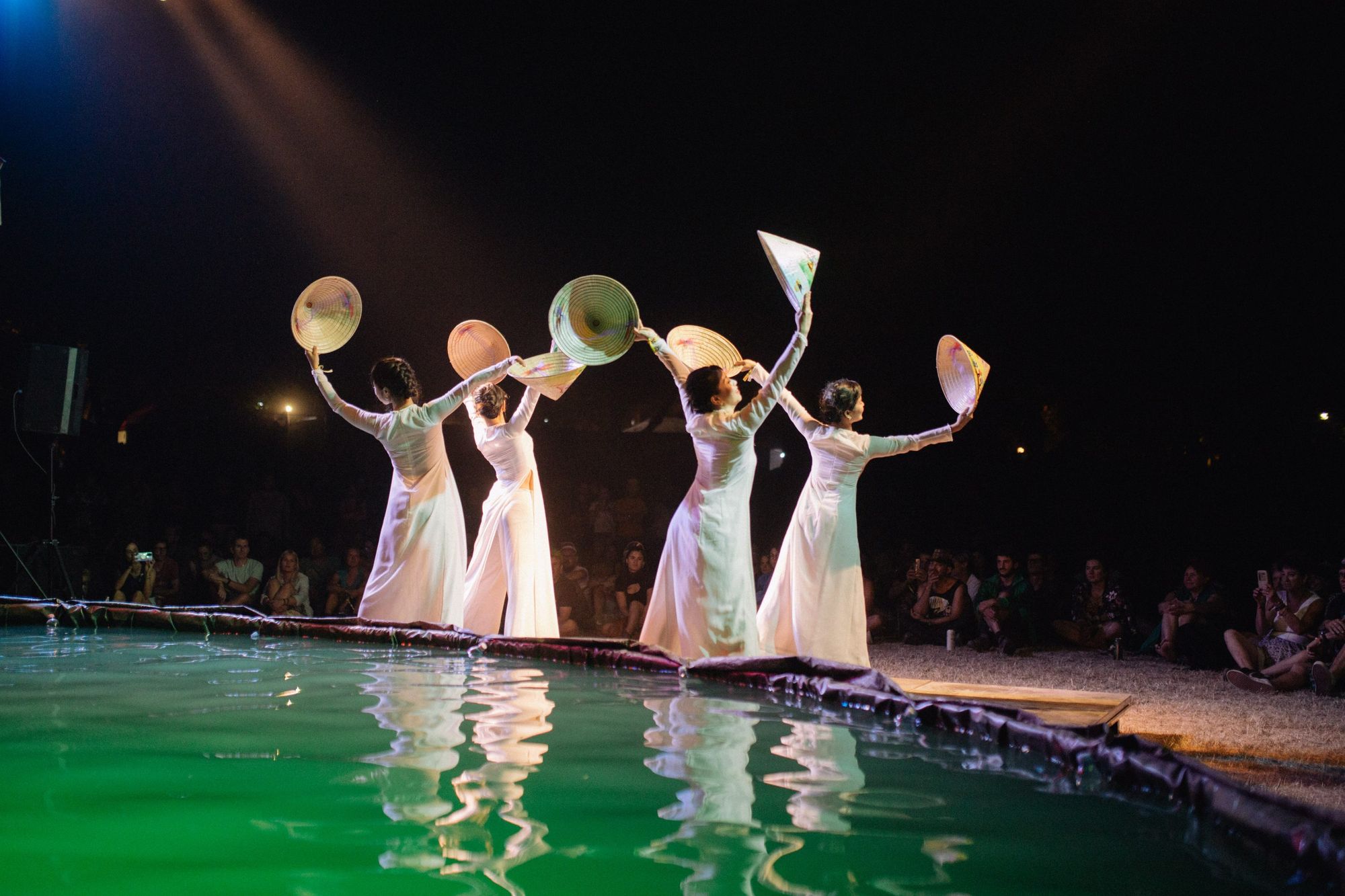
We have already covered this year’s curiosity from the Global Village (see article linked): the Thang Long Water Puppet Theater evoked the atmosphere of rural Vietnamese life with the help of bamboo hats, special traditional Vietnamese instruments, music, and dance. But anyway… raise your hand if you’ve ever seen puppets floating in the water while playing music…
“As different as our countries are, we are connected in our feelings. Heart to heart: we bring our hearts to you and feel your hearts beating with us.” /Ngo, Quynh Giao, Director of the Thang Long Water Puppet Theatre/

And at the end of the day, freedom was in full bloom on the Island: during the evenings, the Spanish company Sacude performed their show „Euforia”, captivating everyone who wanted something extra after the main stage gigs. The acrobats, enclosed in and suspended from glass bricks, first dazzled us and then took us with them to a truly exhilarating aerial party.

Photo: Dániel Gaál, Sziget Festival Official
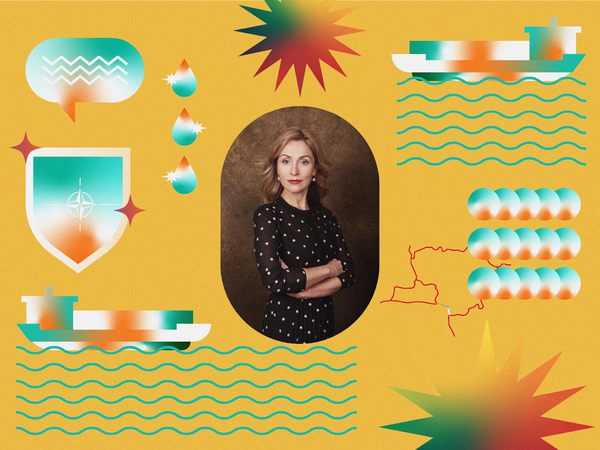
NATO must refocus from deterrence by punishment to deterrence by denial – interview with Margarita Šešelgytė
